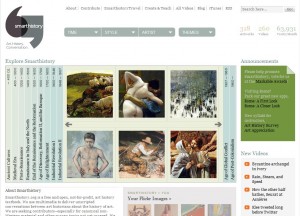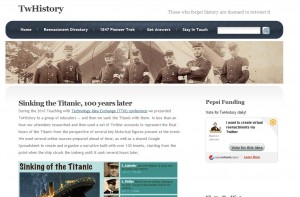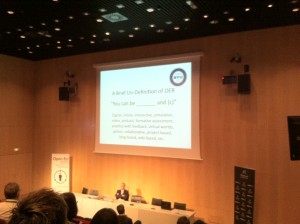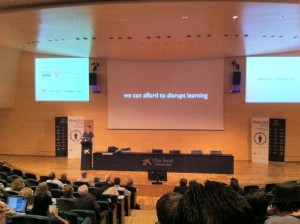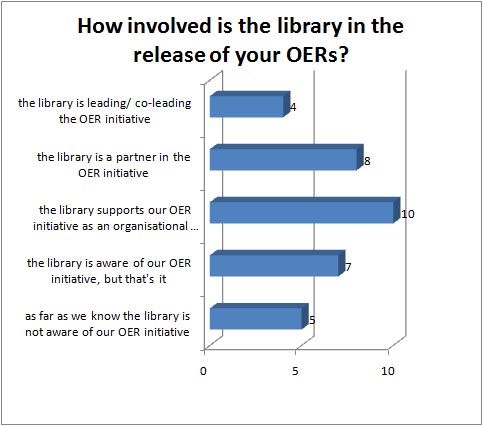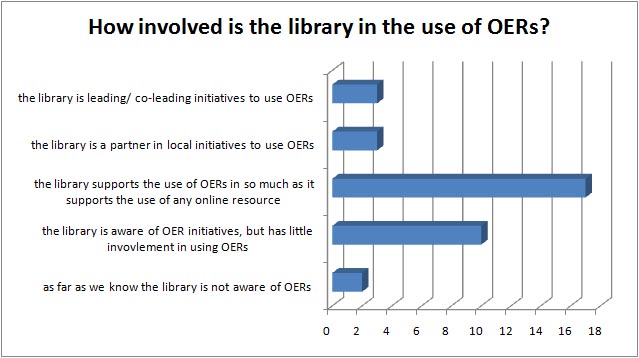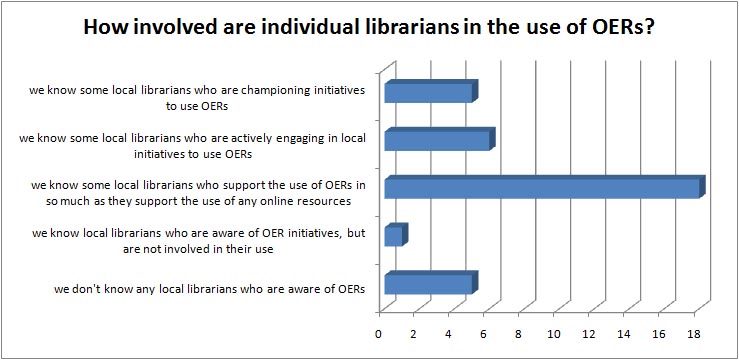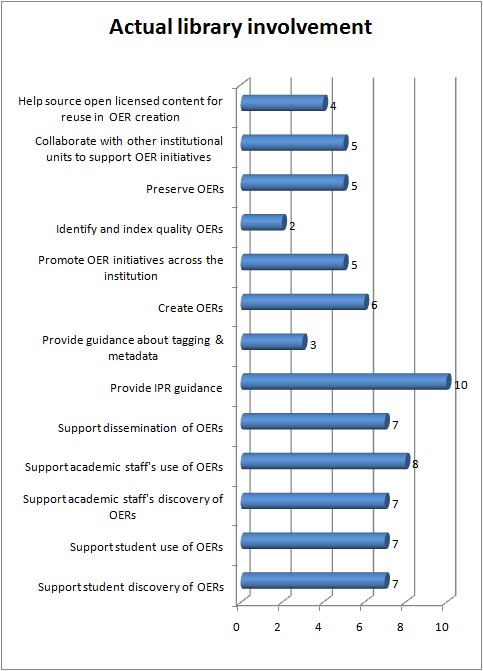As part of my PG Cert in Advanced Academic Studies I’ve been considering the possible application of threshold concepts to open educational resources. As an experiment in openness this is a slight revision of one of my assignments for Teaching, Learning , and Assessment that I think looks at an interesting question.
Introduction
The notion of a threshold concept as developed my Meyer and Land provides a framework for considering, identifying, and addressing critical disciplinary concepts that students struggle with.
A threshold concept can be considered as akin to a portal, opening up a new and previously inaccessible way of thinking about something. It represents a transformed way of understanding, or interpreting, or viewing something without which the learner cannot progress. As a consequence of comprehending a threshold concept there may thus be a transformed internal view of subject matter, subject landscape, or even world view. This transformation may be sudden or it may be protracted over a considerable period of time, with the transition to understanding proving troublesome. Such a transformed view or landscape may represent how people ‘think’ in a particular discipline, or how they perceive, apprehend, or experience particular phenomena within that discipline (or more generally).
Threshold Concepts and Troublesome Knowledge (1): linkages to ways of thinking and practising within the disciplines, 2003. Available: http://www.utwente.nl/so/vop/nieuwsbrief_17/land_paper.pdf
I’ll return to the particular features of threshold concepts later, but to briefly mention one or two examples from the paper: temperature gradients (in physics), opportunity cost (in economics) . They’re are concepts that fundamentally shift how you interact with the subject but are often not intuitive. [For the purposes of this post: I don’t want to get too distracted with defining Threshold Concepts at this stage – but rather use the idea as a springboard to consider what shifts in perspective might have to occur wen encountering Open Educational Resources. I’ll come back to which of these shifts are Threshold concepts later].
Related overview website of work in this area: http://www.ee.ucl.ac.uk/~mflanaga/thresholds.html
Open Educational Resources
As such the idea of ‘threshold concepts’ (Meyer & Land, 2003) or the similar idea of ‘expert knowledge’ (Pace & Middendorf, 2004) resonates with the challenges and communication issues my colleagues and I often encounter. This assignment will examine how these concepts apply to the area of our work around the open sharing of educational resources.
The Cape Town Open Education Declaration stated
“We are on the cusp of a global revolution in teaching and learning. Educators worldwide are developing a vast pool of educational resources on the Internet, open and free for all to use. These educators are creating a world where each and every person on earth can access and contribute to the sum of all human knowledge. They are also planting the seeds of a new pedagogy where educators and learners create, shape and evolve knowledge together, deepening their skills and understanding as they go…” (Open Society Institute and the Shuttleworth Foundation, 2007)
Open Education falls into a wider spectrum of issues around openness and ownership in late 20th and 21st Century culture. The underlying principles and issues are not new but have been brought into sharp relief by changes in technology and associated working practices. There are three main areas where these issues are impacting or are likely to impact Higher Education; these are Open Access, Open Education, and Open Data. An academic’s interaction with Open Access and Open Data is increasingly likely to come directly (and somewhat inevitably) as a consequence of public funding. Their interaction with Open Education is, however, much more likely to be routed in local decisions or personal choice (either to change practice or apply for particular funding which requires openness). Perhaps one of the key features of an OER is that it has clear licensing permitting free use and distribution. Such licenses usually permit reuse and are nearly always non-transactional (they don’t require permission to be sought or any form of communication prior to use).
This outline of issues around Open Education which academics (and others) frequently find troublesome is a result of collaborative discussion. I discussed the issues around the adoption of Open Education with my colleagues – Sheila MacNeill and Lorna Campbell. Sheila and Lorna are assistant directors of JISC CETIS and experienced professionals in the e-learning domain who have had significant engagement with issues around managing and sharing Open Educational Resources (OER)- Lorna in advising and helping scope the pilot Open Education Resources programme (JISC, 2009) and Sheila in engagement with the international OER community. Together we identified the following issues.
The shifts in perspective around Open Educational Resources
There are a number of areas in which an academic’s current practice is challenged when shifting to creating OERs. Some of these are intrinsic, others relate to the shift in the creation of learning resources from a physical to a digital model. The key issues in shifting to working digitally relate to a shift in where resources are created, shared, and stored; a shift from working on ‘my computer’ to having stuff on one or many computers which are part of an institutional network and the wider web. There is a related ownership question around where things are when thinking of sharing teaching resources in a department. Another related issue is that resources on the web are fundamentally in flux – there is no guarantee that any given resource will persist, but it’s likely something comparable will. These issues have no direct connection to Open Education but they raise similar issues and usually arise as part of a discussion about it.
Issues around publication or release
Unlike journal articles or books, academics usually regard learning materials as works in progress- they are essentially viewed as unfinished and associated with a particular course. They may have lecture notes or slides which have been used over a number of years and undergone multiple revisions which are regarded as one thing. Releasing such slides openly turns them into a punctuated series of connected resources. We’ve found that this is a more difficult conceptual transition than expected and is closely linked to concerns over maintaining currency.
Few OER initiatives, whether institutional or individual, afford any kind of formal peer review prior to release- consequently the creator is left to judge the value of their own work. This creates difficulties at both ends of the scale, academics can both undervalue and overvalue their work (from ‘no one would want to use that’ to ‘I’m not giving that away because I could sell it’). A related issue is that in sharing resources there is considerable value not only in sharing the resource itself but also in sharing information about its context of use and any associated course design or learning design process.
The lack of formal peer review also places more responsibility on the academic to ensure their learning resources are appropriate and have made appropriate ethical considerations; although one would hope they were appropriate and ethical in general- some material appropriate for classroom use may not be suitable for open licensing (for example, medical imaging or personal information).
Issues around control
One fundamental premise round many open licenses is that they grant the ability to redistribute. As such once a license has been granted anyone can come along copy your content and make it available themselves as long as they comply with the license terms you’ve stipulated. The only copy you can control is your local one. The only copy you can remove from circulation is your local one. The only copy you can update is your local one. Although there are possible approaches to alleviate some of these concerns there is a fundamental change in ownership. Many academics who are very happy to give their material away struggle with this inability to control what they’re giving away and run the risk of early versions continuing to circulate (this is in marked difference to their attitudes to earlier articles).
Related concerns exist occasionally arise around the possibility of theft or plagiarism. These are however, somewhat spurious risks of theft or plagiarism are present as soon as learning resources are used or distributed in any form. It could be argued that clearly attributed openly available materials online are likely to make the detection of plagiarism or theft easier.
Issues for academics
Beyond these particular issues around publication and control there is a fundamental claim that the benefits of open licensing for educational resources outweigh the difficulties or potential risks.
For academics some of the other concerns around OERs might include:
- a feeling that their teaching is being commoditised
- a worry that if they make their materials available students may not turn up to lectures or the institution (having got hold of these) may value them less or fire them
- a concern that their materials aren’t good enough
Some of the reasons academics to release OERs include:
- the perceived good of sharing resources; particularly with the developing world
- many of the available tools and the processes involved in sharing resources create a resource management environment which helps you manage and find your resources
- sharing resources openly globally also makes it easier for your students to use them
- sharing resources openly makes better use of work you’re doing anyway
- sharing resources openly has the potential to get your resources used more
- sharing resources openly may enhance your reputation and attract students to your course
- sharing resources openly may have a positive impact on your online visibility and consequent positive impact on the visibility of your research
- knowing that your materials are public encourages you improve them
- sharing resources openly may help create a feedback loop when other academics interact with you about your content
Issues for Institutions
There is a similar value proposition for institutions. Some of the concerns institutions may have include:
- a loss of their competitive edge by sharing learning resources
- the staff development and possible infrastructure investment to promote and support the release of OERs in a manner that most benefits the institution
- the effect on their reputation of shoddy content being released
- potential liability relating to errors in the materials
- the implications of a shift in the value of formal education from knowledge transmission to the provision of a structured experience, supportive context, and a venue for assessment (formative and summative) and accreditation
The possible benefits to the institution include:
- the kudos and visibility accrued through supporting open education
- the general promotion and visibility of the university brand
- allowing potential students get a taste of the courses they’re considering may improve student recruitment (in particular in the context of overseas recruitment or Professional development courses)
- providing wider access to course materials may support the retention of existing students
- openly releasing course materials may enhance departmental and interdisciplinary communication and projects
Changes in approach to course design
Another possible threshold concept connected to OERs was suggested by Helen Beethem (2010) is “designing for the ‘unknown learner’” – OERs require course design which is compatible with an unknown learner (that is as a minimum course design which does not suppose access to restricted resources or assume particular interaction). This may true if you’re explicitly designing resources for what might be termed ‘universal use’; however many OERs are not designed in this manner and there are considerable implications for local users and assumptions about context if this approach is taken. As such I’m not yet where the balance is between designing for ‘universal use’ and designing for open release – both require a careful consideration of the resources used but designing for ‘universal use’ affects course design in much more comprehensive (and potentially limiting ways).
Are these threshold concepts?
Meyer and Land (pp. 5-7) outline five key features of a threshold concept. It must be:
- Transformative
- Irreversible
- Integrative
- Bounded
- Troublesome
I’d argue that, although they have some roots in earlier practice, the concepts outlined above in are clearly transformative. They significantly change how an academic interacts with their content and can influence their wider views about their control of their online presence and identity. It should be noted, however, that (for many good reasons) it can be a partial or limited experience – sharing some resources does not necessitate sharing all resources.
Although the decision to release OERs can be reversed (for a number of reasons), experience thus far is that the underlying impulse to share openly is much less reversible for individuals. There is a case that once an individual accepts the value proposition it is not likely to be rejected.
Integrative is difficult to assess as there is a not a clear subject domain. Open Education does somewhat relate to notions of Open Access and clearly relates to Open Data so there is a degree of integration there. It does, however, offer a fit with wider changes in the value of institutions and new models of course design.
The above concepts are bounded in so far as they can be partially applied and there is in each case a value judgement to be made. The boundaries involved are not so much related to domain but to suitability for this purpose and local costs.
These concepts are troublesome in many circumstances; in particular:
• the challenge about ownership of their intellectual effort can unsettle academics
• the underpinning notion that the value of the university experience is not about access to content can be difficult to academics and institutions to work through
• accepting the degree of risk and liability involved
• accepting that once it’s licensed and online content cannot be controlled
However, the issues around participation are arguably threshold concepts – realising the value added by participation, the value of sharing ‘good enough’ material, and the potential demand for resources locally considered commonplace. All of these potentially meet the criteria for threshold concepts. A key sticking point is the irreversibility question; although at an individual level the choice to release resources openly is certainly a reversible shift, the appreciation of the potential value of community participation, of shared work-in-progress, and of what other’s might find useful are all perspective shifts which are much less reversible.
Conclusions
Some of the identified issues appear to fit within the framework of threshold concepts. I’m not entirely convinced about the fit with the notion of irreversibility because this can be applied partially and selectively. The wider challenge for Open Education is as a transformative concept is that the validity of the value propositions is still very much under examination and the adoption of Open Education – especially for institutions carries a degree of risk and uncertainty. As mentioned earlier teaching or communicating around this topic fits well with the notion of expertise outlined by Middendorf and Pace and this may be a better fit for these concepts at this stage of their development; there is something, however, in the troublesome and transformative nature of these concepts that Pace and Middendorf’s model doesn’t quite capture in the way the idea of threshold concepts might.
Bibliography
Beetham, H. (2010, March 4). Retrieved March 9, 2010, from http://twitter.com/helenbeetham/statuses/9968333951
JISC. (2009). Open educational resources programme. Retrieved March 9, 2010, from http://www.jisc.ac.uk/oer
Meyer, J. H., & Land, R. (2003). Threshold Concepts and Troublesome Knowledge (1): linkages to ways of thinking and practising within the disciplines. In C. Rust, Improving Student Learning – Ten Years On. Oxford: OCSLD. http://www.utwente.nl/so/vop/nieuwsbrief_17/land_paper.pdf
Open Society Institute and the Shuttleworth Foundation. (2007, September). Retrieved March 9, 2012, from The Cape Town Open Education Declaration: http://www.capetowndeclaration.org/read-the-declaration
Pace, D., & Middendorf, J. (Eds.). (2004). Decoding the disciplines helping students learn disciplinary ways of thinking (Vol. 98). Jossey-Bass, Higher and Adult Education series.
